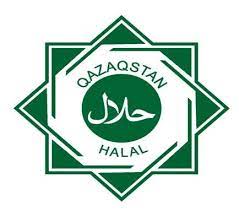The application of Food Science and Technology is key to Brunei’s success in making the Sultanate’s agriculture production more intensive and cost-effective, while being done in a sustainable manner, said Ministry of Industry and Primary Resources Permanent Secretary Dato Paduka Hj Hamid Hj Mohd Jaafar at the opening of the 11th ASEAN Food Conference yesterday.
The international conference, is being held for three days at The
Rizqun International Hotel in Gadong, brings together more than 700
participants from 31 countries.
The permanent secretary, who is also co-chairperson of the event’s
organising committee, said that investment in the development of food
technologies was just as essential and that countries could not solely
rely on the development of agribusiness.
“For this to happen, R&D, innovation and capacity building need
to be consolidated within ASEAN so as to keep pace with global demands
for value-added, functional, safe and halal foods,” he said.
Innovative approaches in food science and technology was not only
needed to maintain the quality of raw materials, but also to add value
to certain food products, he added.
Given the increasing global concern on the human impact on the
environment, he said, food producers are currently looking for new
technologies and methods to produce food while minimising their carbon
footprint, particularly through the use of energy-efficient devices.
Dato Hamid highlighted that ASEAN, under its ASEAN Charter,
identified food security as one of the major challenges faced by the
region. He said that the 10-member regional bloc was looking into
effective ways to encourage investment in agriculture to enhance the
region’s capacity in food production.
“All these measures will indeed reassure people of the continuous availability of food supplies in the region,” he said.
The permanent secretary said that Brunei saw food security as a top
priority in the national agenda. He shared some of the Sultanate’s
initiatives in improving self-sufficiency in food production such as
the country’s recent venture into large-scale padi planting.
Brunei aims to achieve 20 per cent self-sufficiency through rice production by 2010 and 60 per cent by 2015, he said.
“These targets are ambitious and to succeed, all of the key
strategic supports such as agricultural infrastructure, management,
equipment, technology and training must be adequately provided,” he
said.
As one of the highest per capita consumers of fish, Brunei
recognises the importance of marine catches to the food supply chain
and the need to ensure a continuous supply of this major source of
protein, he added.
He noted that the ministry’s Fisheries Department has incorporated
modern methods in aquaculture to increase the local production of fish
to meet demand.
In closing, Dato Hamid spoke on how international cooperation would contribute to increasing food production in the region.
He said that elements such as price stabilisation, investment in
research and development, knowledge transfer and technical cooperation
could form the basis for this. “Developed nations can indeed contribute
by extending food production technology to the developing world,” he
said.
Also speaking during the conference’s opening, ASEAN-COST (Committee
on Science and Technology) representative Emir Rio Krishna said that
ASEAN science and technology ministers recognised food as a critical
issue to its ASEAN citizens as well as the rest of the world.
Issues such as food processing, food packaging and other food
technologies needed to be addressed to contribute to socio-economic
development in the region, he added.
Krishna hoped that the conference would foster global networking and
linkages amongst the ASEAN member states as partners in food science
and technology.
The Brunei Times



